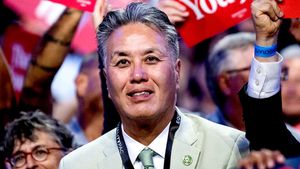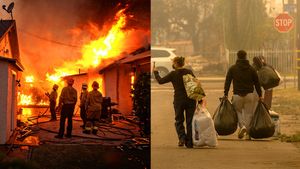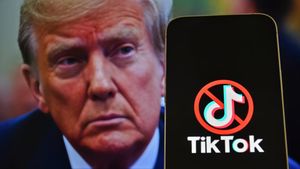
Treatment GuideJust DiagnosedSex & DatingAfrican AmericanStigmaAsk the HIV DocPrEP En EspañolNewsVoicesPrint IssueVideoOut 100
CONTACTCAREER OPPORTUNITIESADVERTISE WITH USPRIVACY POLICYPRIVACY PREFERENCESTERMS OF USELEGAL NOTICE
© 2025 Pride Publishing Inc.
All Rights reserved
All Rights reserved
By continuing to use our site, you agree to our Private Policy and Terms of Use.
You are the government of a Third World country facing a debilitating epidemic. One of the richest men in the world announces that he is going to give you $100 million to fight the disease. Do you (a) thank him profusely and immediately start implementing social and medical programs, (b) question his motivations and refuse the money, or (c) vociferously deny that there's any major health problem facing your country, snub your benefactor, but accept the money anyway? If it is November 2002 and you are the Indian government, you pick the last option. When Microsoft chairman Bill Gates pledged $100 million last year to help fight the AIDS epidemic in India, even the most vocal Microsoft detractors understood that this was an act of charity'and a necessary one at that. Not so the Indian government. In interviews following the bequest, India's leaders repeatedly showed their ignorance about the threat of HIV in their country and dismay at Gates's offer. India's health minister, Shatrughan Sinha, was too busy even to meet with Gates and publicly accused him of 'spreading panic.' When I traveled to India over the Thanksgiving holiday, I was outraged over the situation and was filled with the urge to discuss it with my Indian-American friends. We were all liberal and educated. We were all sexually and politically active. But surprisingly, I found among them the same reluctance to condemn the Indian response to Bill Gates's generosity. 'It's different there,' my friend said of India. 'It's harder for them to talk about it.' But no one is talking about it at all. Though my friends and I were born and raised in America, our parents were South Indian Brahmans, a group known as much for its value of education as for its elitism. When I was growing up, issues like AIDS and homosexuality were dirty subjects, not to be discussed. The implicit assumption was that AIDS was a Western issue, a 'white person's problem,' a disease that affected only homosexuals and drug users. Indian kids did not do drugs, let alone use dirty needles. Indian kids would not have sex before marriage, let alone be gay. Indian kids were raised properly with family values, not like American kids who experimented with everything and got into so much trouble. And so Indian kids did not have to worry about becoming infected with HIV. Our parents' stance echoes the position that the Indian government has shortsightedly taken in the past few years: India's people do not need AIDS education and medical treatment. Just teach family values and ethical behavior. Only the immoral will be punished by HIV. The rationale behind this approach to AIDS prevention parallels the assumption in America's Bible Belt that if you do not talk about it, kids will not think about it. And the result? An HIV-positive population in India estimated to be at least 4 million'and growing rapidly'and a generation of kids who learned about sex and AIDS through American television. There are two easy, early steps that can be taken to help combat this growing problem. The first is for Indians in India and abroad to acknowledge that homosexuality is not unique to America'brought on by too much television and junk food. Gay people are everywhere. The second step is to realize that HIV is a color-blind issue. No amount of family values will stop the spread of HIV if there is no forum for discussion or education. The brilliant 1996 film Fire by Indian screenwriter, director, and producer Deepa Mehta succinctly stated India's problems with homosexuals'and by extension with those affected by HIV: 'There are no words for what we are.' Without words, there is no communication. Talking about HIV will not spread the disease; not talking about it will. Viswanathan is an attorney and a freelance journalist from New York City.
From our Sponsors
Most Popular
Why activist Raif Derrazi thinks his HIV diagnosis is a gift
September 17 2024 12:00 PM
How fitness coach Tyriek Taylor reclaims his power from HIV with self-commitment
September 19 2024 12:00 PM
Out100 Honoree Tony Valenzuela thanks queer and trans communities for support in his HIV journey
September 18 2024 12:00 PM
Creator and host Karl Schmid fights HIV stigma with knowledge
September 12 2024 12:03 PM
The freedom of disclosure: David Anzuelo's journey through HIV, art, and advocacy
August 02 2024 12:21 PM
From ‘The Real World’ to real life: How Danny Roberts thrives with HIV
July 31 2024 5:23 PM
Eureka is taking a break from competing on 'Drag Race' following 'CVTW' elimination
August 20 2024 12:21 PM
California confirms first case of even more deadly mpox strain
November 18 2024 3:02 PM
Plus: Featured Video
Latest Stories
A camp for HIV-positive kids is for sale. Here's why its founder is celebrating
January 02 2025 12:21 PM
This long-term HIV survivor says testosterone therapy helped save his life.
December 16 2024 8:00 PM
'RuPaul's Drag Race' star Trinity K Bonet quietly comes out trans
December 15 2024 6:27 PM
Ricky Martin delivers showstopping performance for 2024 World AIDS Day
December 05 2024 12:08 PM
AIDS Memorial Quilt displayed at White House for the first time
December 02 2024 1:21 PM
Decades of progress, uniting to fight HIV/AIDS
December 01 2024 12:30 PM
Hollywood must do better on HIV representation
December 01 2024 9:00 AM
Climate change is disrupting access to HIV treatment
November 25 2024 11:05 AM
Post-election blues? Some advice from mental health experts
November 08 2024 12:36 PM
Check out our 2024 year-end issue!
October 28 2024 2:08 PM
Meet our Health Hero of the Year, Armonté Butler
October 21 2024 12:53 PM
AIDS/LifeCycle is ending after more than 30 years
October 17 2024 12:40 PM
Twice-yearly injectable lenacapavir, an HIV-prevention drug, reduces risk by 96%
October 15 2024 5:03 PM
Kentucky bans conversion therapy for youth as Gov. Andy Beshear signs 'monumental' order
September 18 2024 11:13 AM
Study finds use of puberty blockers safe and reversible, countering anti-trans accusations
September 11 2024 1:11 PM
Latinx health tips / Consejos de salud para latinos (in English & en espanol)
September 10 2024 4:29 PM
The Trevor Project receives $5M grant to support LGBTQ+ youth mental health in rural Midwest (exclusive)
September 03 2024 9:30 AM
Introducing 'Health PLUS Wellness': The Latinx Issue!
August 30 2024 3:06 PM
La ciencia detrás de U=U ha estado liberando a las personas con VIH durante años
August 23 2024 2:48 PM














































































